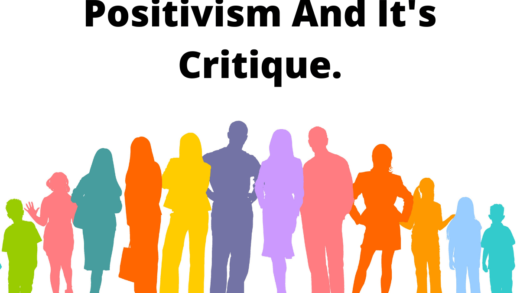As already learned in previous articles, sociology is the science of society that studies social groups, interactions, and institutions. It is interlinked with many other social sciences in one way or the other. Sociology And Common Sense
But did you know, that sociology also keeps a core relationship with common sense? Before learning about the relationship, it is important to know more about what does common sense mean?
About Sociology And Common Sense.
About common sense.
Common sense is defined as routine information that people have about their everyday life and activities. The subject is majorly based on naturalistic facts. The knowledge of an individual is considered merely a rough assumption.
Further, according to the syllabus, sociology is mentioned as a comparison to that common sense. But at what levels the two are linked or distinguished?
- Common sense refers to the activities that can be viewed over a surface and did not require any deep understanding of any particular event or situation. On the other hand, sociology is something that deals with the core reasons why a particular event is happening. It takes into account the organized, unorganized, past, or present data to reach an assumption for any event.
- Peter Berger, a famous sociologist mentioned that “the interest of sociology lies in the fact that its ideology makes us see the new world in a new light in which we have lived our lives”.
- Sociology makes use of logical and reasoning facts but common sense takes into account the estimations and conventional beliefs.
- Common sense is unreflective because it does not enquire about the source. Therefore, one could not infer that every common-sense opinion about society is not sociological.
Sociology and common sense match each other in some facts. Sociology is outlined by considering commonsense knowledge.
Differences between sociology and common sense.
- The knowledge of common sense is personal but sociological awareness can lead to generalizations.
- Sociology is mostly coherent but common sense knowledge may not be coherent.
- Sociology utilizes theoretical and empirical knowledge to reach any judgment whereas common sense considers only the perceptions and an individual has to look at the surface at a particular point.
- Sociology has a big room for causal explanations and interconnecting theories, but common sense does not.
- Sociology considers evidence whereas common sense is dependent upon assumptions.
Sociologists view.
- Anthony Giddens- “Sometimes Sociological knowledge itself becomes a part of common sense knowledge”.
- Moore and Reid- “Common sense and Science are together used which to expand man’s understanding of truth”.
- Goffman- “Common Sense is the knowledge that people used to make judgments and navigate their way around the world
- Hegel- “All philosophy gradually develops from the ordinary day-to-day consciousness”.
- Durkheim– “Common Sense perceptions are prejudices which can mar the scientific study of the social world”.
Example:
An individual can infer that poverty is an outcome of the lazy behavior of a person from his commonsensical point of view. But the sociological mind concludes that there may have multiple factors associated with poverty. More specifically, poverty is the outcome of structural inequalities existing in our society. Sociology And Common Sense











